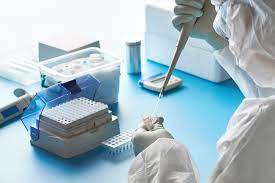
The Importance of Laboratory Testing
Laboratory testing plays a crucial role in various fields, including healthcare, research, forensics, and environmental science. It involves the analysis of samples to provide valuable insights, diagnoses, and solutions. Here are some key reasons why laboratory testing is essential:
Accurate Diagnoses
In healthcare, laboratory tests are vital for diagnosing various medical conditions. Blood tests, urine tests, and other analyses help healthcare professionals identify diseases, monitor treatment effectiveness, and track overall health status.
Research Advancements
Research laboratories rely on testing to explore new scientific frontiers, develop innovative treatments, and understand complex biological processes. From drug development to genetic studies, laboratory testing drives research advancements.
Forensic Investigations
Forensic laboratories use specialized testing techniques to analyze evidence in criminal investigations. DNA analysis, toxicology screenings, and fingerprint examinations are just a few examples of how laboratory testing aids in solving crimes and delivering justice.
Environmental Monitoring
Environmental laboratories play a critical role in monitoring air quality, water contamination levels, and soil health. By conducting tests on environmental samples, scientists can assess pollution levels, identify hazards, and implement measures to protect ecosystems and public health.
Quality Control
In industries such as manufacturing and food production, laboratory testing ensures product quality and safety. From checking ingredient purity to detecting contaminants, quality control laboratories uphold standards that safeguard consumer well-being and satisfaction.
Conclusion
Overall, laboratory testing is indispensable for advancing knowledge, promoting health outcomes, ensuring safety standards, and solving complex challenges across diverse sectors. The precision and reliability of test results empower professionals to make informed decisions that benefit individuals, communities, and the environment.
Seven Essential Tips for Ensuring Accuracy and Safety in Laboratory Testing
- Follow proper safety protocols at all times.
- Calibrate and maintain equipment regularly for accurate results.
- Label samples correctly to avoid mix-ups.
- Document procedures and results meticulously.
- Ensure proper disposal of hazardous materials.
- Verify the quality of reagents before use.
- Consult with colleagues or supervisors when in doubt.
Follow proper safety protocols at all times.
Following proper safety protocols at all times is paramount when conducting laboratory testing. Adhering to safety guidelines ensures the well-being of laboratory personnel, prevents accidents, and maintains the integrity of test results. By wearing appropriate protective gear, handling chemicals with care, and following established procedures, individuals can create a secure working environment that minimizes risks and promotes efficient and accurate testing processes. Prioritizing safety not only safeguards individuals within the laboratory setting but also upholds the quality and reliability of the data generated through testing procedures.
Calibrate and maintain equipment regularly for accurate results.
Calibrating and maintaining laboratory equipment regularly is crucial to ensure accurate results in testing procedures. Proper calibration helps to align instruments with known standards, minimizing errors and discrepancies in measurements. Regular maintenance not only extends the lifespan of equipment but also ensures consistent performance and reliability. By adhering to a strict calibration and maintenance schedule, laboratories can uphold the quality and precision of their testing processes, ultimately enhancing the validity and trustworthiness of their results.
Label samples correctly to avoid mix-ups.
Properly labeling samples is a critical tip in laboratory testing to prevent mix-ups and ensure accurate results. By clearly identifying each sample with the correct information, such as patient details or sample type, researchers can maintain the integrity of their data and avoid potential errors that could compromise the validity of their findings. Attention to detail in labeling not only enhances the efficiency of testing processes but also upholds the quality and reliability of laboratory outcomes, ultimately contributing to better decision-making in healthcare, research, and other fields reliant on precise analyses.
Document procedures and results meticulously.
When it comes to laboratory testing, documenting procedures and results meticulously is paramount. Keeping detailed records of the steps taken during testing procedures and accurately recording the outcomes ensures traceability, reproducibility, and accountability. Meticulous documentation not only aids in quality control and compliance with regulations but also serves as a valuable reference for future analysis, troubleshooting, and decision-making. By maintaining thorough documentation, laboratories can uphold standards of accuracy, transparency, and integrity in their testing processes.
Ensure proper disposal of hazardous materials.
It is crucial to ensure the proper disposal of hazardous materials in laboratory testing to minimize environmental impact and protect the health and safety of individuals. Improper disposal of chemicals, biological samples, or other hazardous substances can lead to contamination of water sources, soil pollution, and potential health risks for laboratory staff and the surrounding community. By following established protocols for handling and disposing of hazardous materials, laboratories can maintain a safe working environment and contribute to sustainable practices that benefit both present and future generations.
Verify the quality of reagents before use.
To ensure accurate and reliable results in laboratory testing, it is essential to verify the quality of reagents before use. Reagents are key components in various tests and experiments, and their effectiveness can significantly impact the outcomes. By conducting quality checks on reagents, such as assessing purity, stability, and expiration dates, laboratory professionals can maintain the integrity of their analyses and minimize the risk of errors or inconsistencies. Prioritizing the verification of reagent quality is a fundamental step in upholding standards of precision and excellence in scientific research and diagnostics.
Consult with colleagues or supervisors when in doubt.
When facing uncertainty during laboratory testing, it is advisable to seek guidance from colleagues or supervisors. Consulting with experienced professionals can provide valuable insights, clarify procedures, and ensure accuracy in test execution. Collaboration and open communication within the laboratory setting foster a supportive environment where knowledge sharing and problem-solving thrive. By reaching out for assistance when in doubt, individuals can enhance their skills, mitigate errors, and contribute to the overall success of the testing process.
